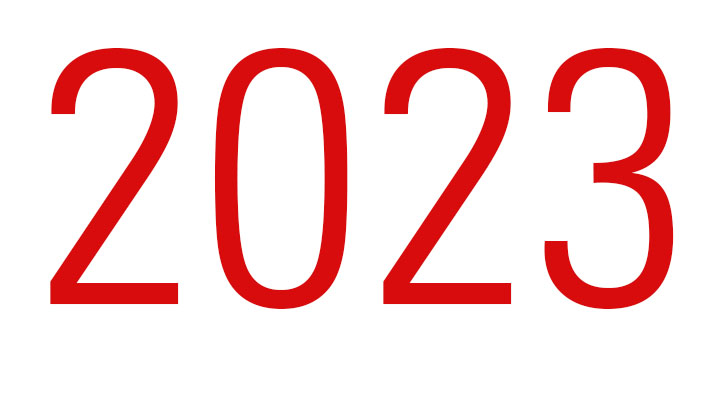
In its last policy meeting for the year, the Bank of Japan kept its ultra-loose monetary policy unchanged. While the meeting cycle is closed for the year, whether the inflation momentum in Japan can be carried over to the new year is still to be seen. Meanwhile, the market is watching the spring wage negotiations that kick off in January, and the impending pivot to rate cuts in the U.S.
Bank of Japan to Watch Wage Negotiations for Signals on Rate Decisions
Experts told Morningstar that inflation will remain a central piece in the BoJ’s decision to adjust rates. The spring wage negotiations, or ‘shunto’, would serve as guidance about consumer prices and policy. Specifically, if the gauge remains close to or above 2%, it could be likely that the central bank will remove the negative interest rate policy.
The inflationary prices come after almost three decades of close-to-zero price changes. According to Morningstar estimates, the level of consumer prices in Japan in mid-2022 was only 8% higher than three decades earlier, meaning that average annual CPI inflation had been just 0.2%.
Aadish Kumar, international economist at T. Rowe Price, thinks: “Our base case scenario is that it will terminate the current negative interest rate policy in April 2024 to coincide with the annual wage negotiations. This is also the time when the BOJ will include the fiscal year 2026 in its forecasts, providing an additional year of forecasts, where the BOJ can signal rising confidence in higher inflation.”
On the other hand, also because of a lack of inflation in the past three decades, Kumar says there is no immediate urgency for the Bank of Japan to change its accommodative stance. Unlike other major economies, he thinks Japan doesn’t have the excessively high inflation that forced interest rates to climb to multi-decade highs.
The other key decision facing the Bank of Japan is the timeline to remove its yield curve control (YCC) policy. “While this could happen as early as December this year, the YCC policy has already been gradually winding down, with the parameters of the 10-year yield cap being loosened toward the point of becoming irrelevant, as evident when the BOJ recently loosened the yield cap from a strict 1% limit to a more flexible “reference” rate,” Kumar adds.
Should some macro shifts arrive in the first part of the new year, what does it mean for the Japanese yen and stocks, which staged opposing paths in 2023?
Yen Appreciation is Expected to be Mild
In 2023, the Japanese yen was so cheap relative to many other currencies, making the country’s production very attractively priced. So far, the effect has been seen most quickly in inbound tourism receipts, which are considered as part of exports in GDP figures on official data. The improving economy, cheap yen, and strong export performance make Japan stocks a top trade in the market.
Looking ahead, Keiko Kondo,head of Asia multi-asset investments at Schroders, forecasts the yen to strengthen against the euro. In her words, a yen appreciation in 2024 would be soft and gradual, rather than aggressive. For the yen to strengthen significantly, Kondo says there are two potential drivers to watch. “[That is] dollar interest rate coming down and yen interest rate going up. The interest rate on the yen would probably, in my view, go up, but to such a small magnitude. That alone is not going to be really driving the yen stronger.”
She manages Bronze-rated Schroder China Asset Income fund and Neutral-rated Asian Asset Income fund.
Investors Should Keep an Eye on Corporate Governance and Currency Risk
If the yen appreciation turns out to be exceedingly strong, Japanese stocks will become a challenging place.
Wary of the potential impacts, Schroders’ Kondo says her bullish call for Japanese stocks could change some time during 2024. “Japanese stocks are not necessarily the thing that I want to be betting as a whole one-year view. But, I feel it’s a bit too soon to be going short Japanese equities,” says Kondo.
She points to the performance drivers for the asset class in 2023. “So far, 80% of the reason for the Japanese equities doing well in the local currencies terms is the yen. The other 20% is, of course, the governance story. I think the story around the governance is actually a strong one so far. But, it’s a slow burner, in the sense that [corporate governance] alone is not going to drive the market higher.”
A moderate upside in the currency will not cause much trouble to the equity market. But as the interest rate gap between the U.S. dollar and the Japanese yen shrinks, the export environment worsens, dragging stock performances.
“That will be a terrible, terrible combination for Japanese [equities], no matter how much you might go there and spend,” Kondo adds.
In terms of valuation, T Rowe’s Kumar suggests being cautious with value names in Japan. That include the export-heavy names, such as the large, multinational auto companies and manufacturers. They benefitted greatly from their increased competitiveness amid a cheap yen environment.
He says: “This has also meant that value-oriented companies have powered the market, significantly outperforming their growth-oriented counterparts. The swing toward value and away from growth in Japan in recent years has been significant.” As this differential between value and growth stocks looks increasingly stretched versus its historical level, he suggests that growth companies and more domestically focused businesses are likely to turn around in 2024 from their respective depressed valuation levels.









:quality(80)/cloudfront-us-east-1.images.arcpublishing.com/morningstar/KWYKRGOPCBCE3PJQ5D4VRUVZNM.jpg)


.png)



.jpg)





